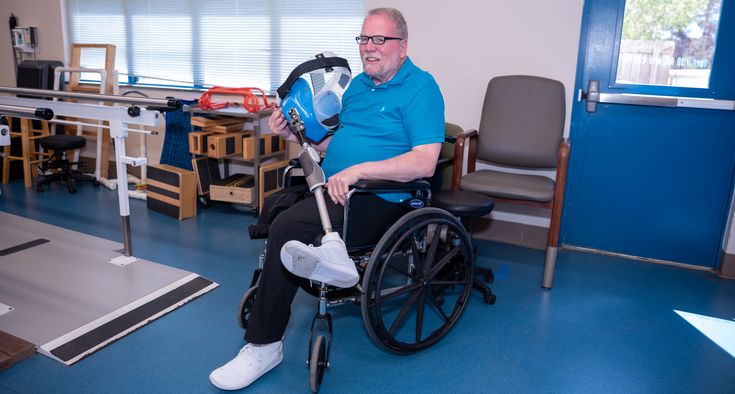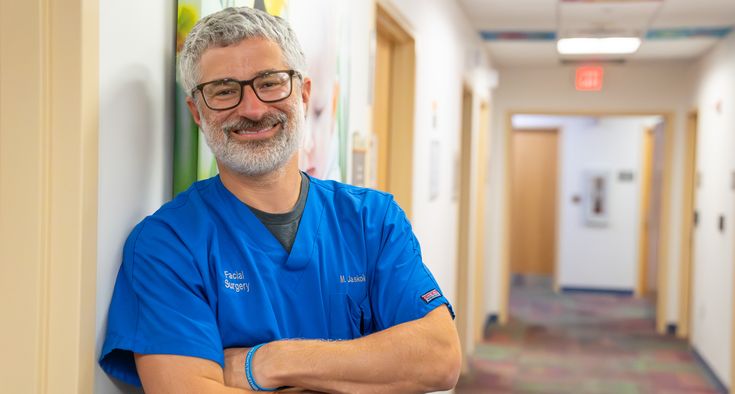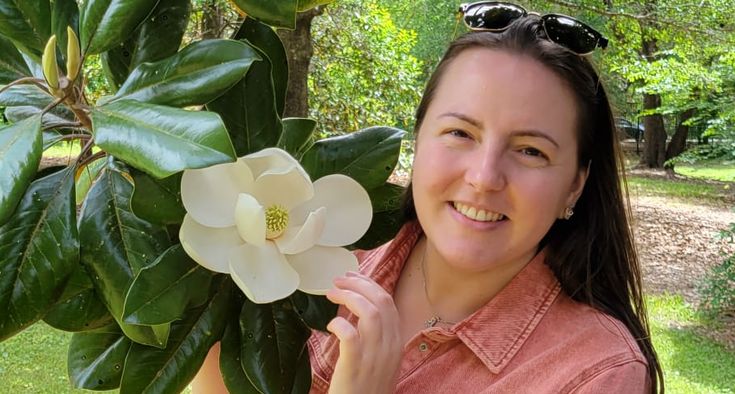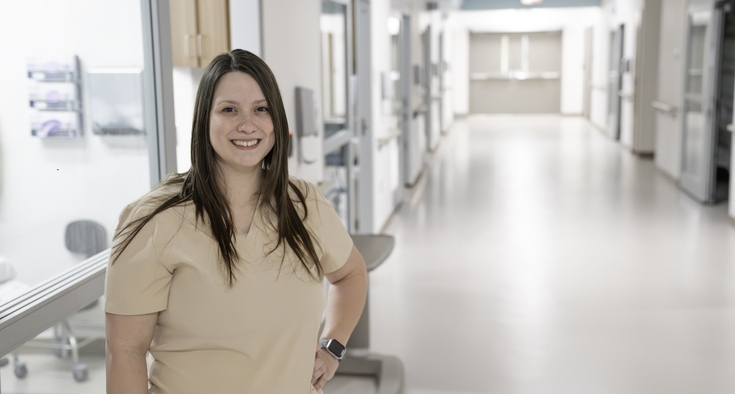When Verneeda Moore first came to the ALS Clinic at Novant Health New Hanover Regional Medical Center in February 2024, she owned a power wheelchair. But it was useless to her because she couldn’t operate it.
ALS, or amyotrophic lateral sclerosis, also known as Lou Gehrig's disease, is a condition that affects the nervous system and causes the gradual loss of the nerve cells that control muscles. As a result, people with ALS become unable to stand, walk, or use their arms and hands. Moore, age 56, is among them. This meant she couldn’t use the joystick that controlled her chair.
Moore didn’t see this as a roadblock though; it was just a speedbump. With the resources and care available to her through the ALS clinic and the Novant Health Rehabilitation Center in Wilmington, she now has a level of independence that she calls “awesome.” Her new power wheelchair is controlled using her eye gaze.
Advanced care for brain, spinal and nerve conditions.
Bringing specialized care to the community
Around 33,000 people in the United States are living with ALS, making it a rare condition that affects about 10 in every 100,000 people, according to the Centers for Disease Control and Prevention. In 2019, the ALS Association announced a goal to provide a specialized, multidisciplinary clinic within 90 miles of every patient living with ALS in North Carolina. Neurologist Dr. Karrie Grear and the neurology team at New Hanover Regional Medical Center were eager to help make this goal a reality and began the clinic in 2020 — the first interdisciplinary ALS clinic within the Novant Health network.
Typically, Grear explained, patients will attend the clinic for two to four hours once every three months or once every six months, depending on their personal needs.

“At first in the clinic, they see a physical therapist, an occupational therapist, a speech and language pathologist, a dietitian,” Grear said. “They see a mobility expert that can help with motorized wheelchairs and things like that, and a social worker. They see a clinical pharmacist to help with the prescriptions and different medications. They see a representative from ALS United who can talk to them about all the different grants and funding that are possible.”
This is how Moore came to meet one of her greatest supporters, physical therapist Kara Cain, who specializes in neurologic physical therapy and works with patients at the Novant Health Rehabilitation Center on Oleander Drive in Wilmington.
“The first time I came here, I was really happy because we had been driving to Chapel Hill,” Moore said, referring to she and her husband, William. “They are really friendly here. … Kara makes it fun and I don’t have to really think about my disability.”
Cain said she knew right away that Moore was “a powerhouse.” The duo combined forces to research and explore resources to increase Moore’s mobility. This led them to meet another of Moore’s supporters, Danielle Neale, an assistive technology professional with Numotion, a company that specializes in complex rehab technology. The three agreed: it was time for Moore to get an upgrade.
Newfound mobility and autonomy
Moore’s new power wheelchair is a midwheel drive power wheelchair, which has two drive wheels directly under her seat, improving stability and maneuverability. Its narrow design allows it to fit in tight spaces. It will drive over uneven terrain and can change positions. Moore can tilt, recline or elevate her seat.
And that joystick that wasn’t suited for Moore? That’s a thing of the past. This chair is equipped with a control interface called Ability Drive that allows Moore to control the movement of her chair using only her eye gaze directed at a computer screen.
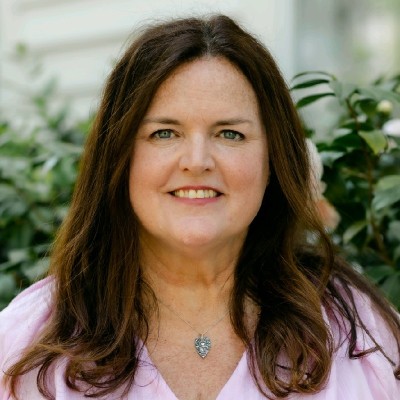
“She looks at the screen, which is a projection of what’s in front of her and superimposed on the screen are grayed-out arrows,” Cain explained. “She can then drive by looking at each arrow, which controls which direction she wants to go.”
Moore said the technology is “absolutely” a game changer, allowing her freedom to navigate her home and participate in more activities with the help of her caregiver, Susan. She can also use the control interface to access the internet – she likes to check her email, watch TV and shop on Amazon.
“We love the fact that this allows her to drive the chair, and it’s nice that the same piece of equipment allows her to access a bunch of other things as well,” Cain said. “Verneeda’s been able to be her own advocate with this device. She has looked into grants, she has looked into other pieces of equipment that other people use. She’s really been able to advocate for herself this way.”
Not every person who doesn’t have use of their arms will qualify for insurance eligibility for the Ability Drive technology, Cain said, so that’s why grants are important. Cain credits Moore with doing the research necessary to tap into grants from the Gleason Foundation and ALS United to obtain her new chair and accompanying software.
Neale emphasized that it’s because of the determination and desire for autonomy from people like Moore that advanced mobility technology exists.
“The need and the desire by patients to be seriously independent has certainly broadened us to go outside the scope of the traditional,” Neale said.
When Moore found that focusing her eyes on the specific points necessary caused head and neck fatigue, Neale and the crew from Numotion adjusted her seating components and added a specialized headrest to her chair.
“Our patients are the teachers,” Neale said.
While there is no cure for ALS, multidisciplinary clinics like the one at New Hanover Regional Medical Center have been research-proven to improve both quality of life and longevity for those afflicted, said Grear, the director of the clinic. For those facing a recent ALS diagnosis, Moore’s words of encouragement are simple and from the heart: “Make the best of every day.”





